security theater
description: measures intended to provide a feeling of security while doing little or nothing to achieve it
37 results
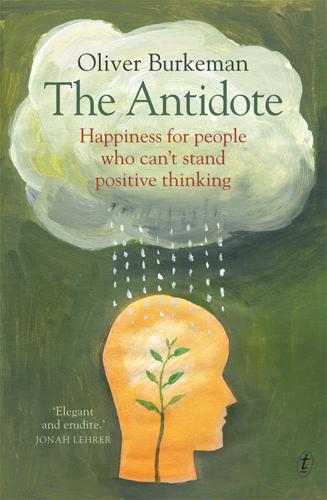
The Antidote: Happiness for People Who Can't Stand Positive Thinking
by
Oliver Burkeman
Published 1 Jul 2012
But at the root of it all, Schneier argues, is the fundamental human desire for a feeling of safety and security – even though this feeling may be only indirectly related, at best, to being more safe or secure. Schneier coined the term ‘security theatre’ to refer to all those measures that are designed primarily to increase the feeling of security, without actually making people more secure. Indeed, it is perfectly possible to argue – Schneier has often done so – that security theatre in fact makes us less secure. It swallows resources that might otherwise be expended on more effective anti-terrorism measures, such as intelligence-gathering, and it makes passengers and security staff less alert to the kinds of suspicious behaviour they ought to be noticing.
…
A posting on Schneier’s blog explained that the barriers would be constructed at Liverpool Lime Street, that city’s primary rail station, but that they would not be constructed at less busy suburban commuter stations, a few miles along the same stretch of track. The blog post was headlined: ‘UK Spends Billions To Force Rail Terrorists To Drive a Little Further’. Brown’s announcement was a classic piece of security theatre: a costly way to make travellers feel safer – so long as they didn’t reflect too closely on the details – while doing nothing to deter an even slightly diligent terrorist. In this book so far, we have seen how some of the most basic doctrines that dominate our thinking about happiness fail to work because we struggle for them too strenuously.
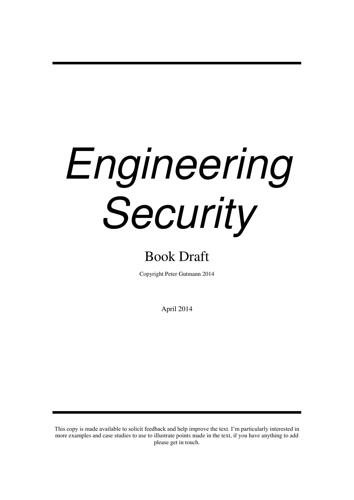
Engineering Security
by
Peter Gutmann
This is an eternal problem with security, no-one notices it until it’s broken so there’s a strong temptation to make it unnecessarily invasive just to let users know that it’s actually there. There’s even a special name for these types of measures when they’re encountered in the physical world, “security theatre”. Warning dialogs and popups are the security theatre of computer security. Unfortunately most users couldn’t care less about the details, they just want to be assured that they’re secure without needing to have the nitty-gritty details thrust in their faces all the time. This is an unfortunate clash between the goals of developers and users: developers want to show off their work but since it doesn’t provide any direct benefit to users, users don’t want to see it.
…
This type of user interface mostly serves the needs of the developer rather than the user (note that in many cases at least some indication that security measures are present and active is still required, an issue that’s covered in “SSL Certificates: Indistinguishable from Placebo” on page 33). Moving beyond warning dialogs and popups, another example of a security-theatre “feature” that’s added to a number of user interfaces is the ability to apply time-based access control restrictions for consumer networking devices. Virtually every home router and firewall that allows setting access controls provides a — usually very complex — interface to set time-based controls.
…
“Learning More About the Underground Economy: A Case-Study of Keyloggers and Dropzones”, Thorsten Holz, Markus Engelberth and Felix Freiling, University of Mannheim Laboratory for Dependable Distributed Systems technical report TR-2008-006, http://honeyblog.org/junkyard/reports/impersonation-attacksTR.pdf. [98] [99] [100] [101] [102] [103] “The Myths of Security: What the Computer Security Industry Doesn’t Want You to Know”, John Viega, O’Reilly, 2009. “Security Theater on the Wells Fargo Website”, Don Bixby, 13 March 2013, discussion thread at http://www.schneier.com/blog/archives/2013/03/security_theate_8.html#c1213990. “So Long, And No Thanks for the Externalities: The Rational Rejection of Security Advice by Users”, Cormac Herley, Proceedings of the 2009 New Security Paradigms Workshop (NSPW’09), September 2009, p.133.
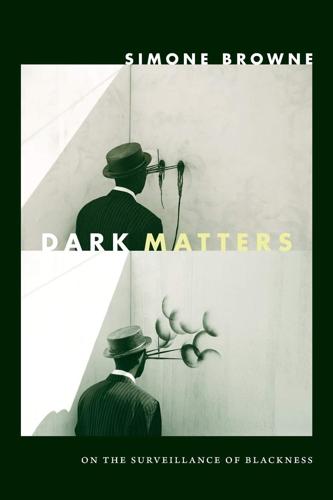
Dark Matters: On the Surveillance of Blackness
by
Simone Browne
Published 1 Oct 2015
I also explore the contemporary circulation of branding artifacts for sale online and take up visual artists Mendi + Keith Obadike’s Blackness for Sale, where Keith Obadike put his blackness up for sale on eBay.com as a way to question the current trade in slave memorabilia and branding blackness. Chapter 4, “‘What Did TSA Find in Solange’s Fro’?: Security Theater at the Airport,” asks, broadly, what the experiences of black women in airports can tell us about the airport as a social formation. This chapter also examines art and artworks at and about the airport and popular culture representations of post-9/11 security practices at the airport to form a general theory of security theater. This is far from saying that security measures and security theater at the airport are a strictly post-9/11 formation. Between 1970 and 2000 there were 184 hijackings of U.S. commercial airline flights, while for foreign carriers during that period hijackings totaled 586.74 Garrett Brock Trapnell hijacked one of those planes, Trans World Airlines Flight 2 from Los Angeles to New York on January 28, 1972, and during this hijacking he reportedly said: “I’m going to tell you exactly what I want.
…
I also examine the discretionary power wielded by TSA agents and by airline workers by looking at cases of, mainly, black women who were subjected to invasive pat downs, hair searches, and other security theater measures. I do this as a way to question how black women are deployed in narratives about airport security, for example, through representations in popular culture as uninterested, sassy, and ineffective TSA agents. This chapter suggests that we pay attention to the ways that black women’s bodies come to represent, and also resist, security theater at the airport. The epilogue brings together this book’s key concerns around the question of what happens when blackness enters the frame, whether that be cameras that “can’t see black people” or centering blackness when it comes to questioning the logics of surveillance. 1 NOTES ON SURVEILLANCE STUDIES THROUGH THE DOOR OF NO RETURN The door is a place, real, imaginary and imagined.
…
If the airport can be thought of as a site of learning, what can representations of security theater in popular culture and art at and about the airport tell us about the post-9/11 flying lessons of contemporary air travel? The second section of this chapter takes artworks produced in response to the post-9/11 airport as a form of social inquiry that can explore the various ways that people can navigate, comply with, refuse, and resist surveillance practices at airports. To do this, I turn to Pamela Z’s Baggage Allowance, Evan Roth’s Art in Airports series, and the digital art exhibition Terminal Zero One as they each question and critically engage security theater in contemporary air travel.
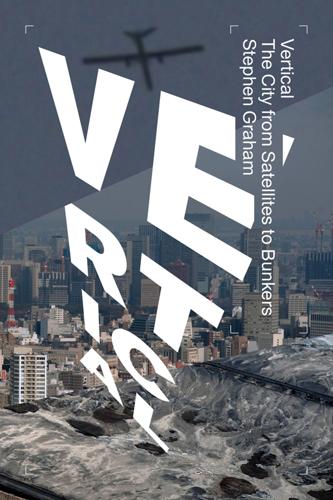
Vertical: The City From Satellites to Bunkers
by
Stephen Graham
Published 8 Nov 2016
Where they function, cross-border tunnels work to render the above-ground discourses of perfect, militarised control as little less than a post 9/11 ‘security theatre’. They radically undermine the way militarised and patrolled borders are brought into being through a series of architectural fallacies asserting perfect administrative control. They thus work to challenge lucrative military-industrial fantasies, organised by politicians and contractors to symbolise projects deemed to ‘protect’ vulnerable national identities against some demonised, external or racialised other.28 Because the lethal security theatre of the above-ground walls relies on demonising all that it forces both beyond and below ground, by definition it very often also disguises the real nature of what flows in the tunnels.
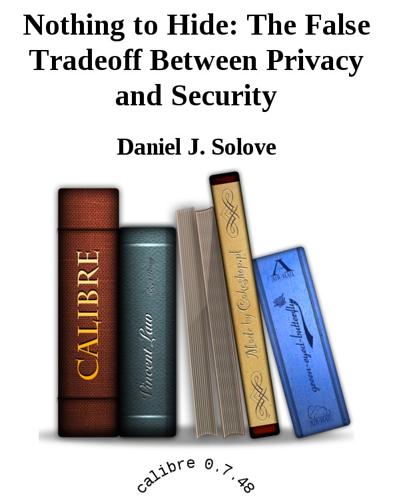
Nothing to Hide: The False Tradeoff Between Privacy and Security
by
Daniel J. Solove
Published 28 Jun 2011
The security expert Bruce Schneier calls such measures “security theater,” for they constitute an elaborate exercise in playacting to create the appearance of security. Schneier writes: Security theater refers to security measures that make people feel more secure without doing anything to actually improve their security. An example: the photo ID checks that have sprung up in office buildings. No-one has ever explained why verifying that someone has a photo ID provides any actual security, but it looks like security to have a uniformed guard-for-hire looking at ID cards.10 Is security theater legitimate? Calming public fear is certainly a good thing, but the problem is that security theater is a lie.
…
Unfortunately, rarely do discussions about the sacrifice of civil liberties explain why security benefits can’t be achieved in other ways and why such a security measure is the best and most logical one to take. Little scrutiny is given to security measures. They are often just accepted as a given, no matter how ill-conceived or ineffective they might be. Security Theater Some ineffective security measures, such as the New York City subway search program, are largely symbolic. The subway searches are unlikely to catch or deter terrorists because they involve only a minuscule fraction of the millions of daily passengers. Terrorists can easily turn to other targets or attempt the bombing on another day or at another train station where searches aren’t taking place.
…
Calming public fear is certainly a good thing, but the problem is that security theater is a lie. I believe that most people would rather know the truth than feel better through deception. Meaningful protection of rights requires that they be sacrificed only when security measures are really effective. Rights shouldn’t be sacrificed for lies, no matter how noble the intention behind the lies might be. Why No Deference Is Good for Security Not only is a policy of no deference better for privacy rights, it is also better for security. If security officials know they’ll have to justify their policies, they might be more careful about which ones they decide to use.
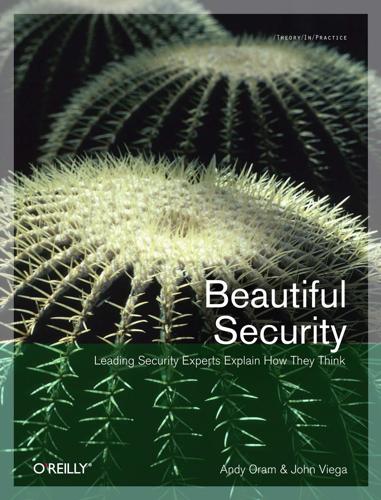
Beautiful security
by
Andy Oram
and
John Viega
Published 15 Dec 2009
Sabett 199 CONTENTS 13 14 15 16 Culture Balance Communication Doing the Right Thing 200 202 207 211 BEAUTIFUL LOG HANDLING by Anton Chuvakin 213 Logs in Security Laws and Standards Focus on Logs When Logs Are Invaluable Challenges with Logs Case Study: Behind a Trashed Server Future Logging Conclusions 213 214 215 216 218 221 223 INCIDENT DETECTION: FINDING THE OTHER 68% by Grant Geyer and Brian Dunphy 225 A Common Starting Point Improving Detection with Context Improving Perspective with Host Logging Summary 226 228 232 237 DOING REAL WORK WITHOUT REAL DATA by Peter Wayner 239 How Data Translucency Works A Real-Life Example Personal Data Stored As a Convenience Trade-offs Going Deeper References 240 243 244 244 245 246 CASTING SPELLS: PC SECURITY THEATER by Michael Wood and Fernando Francisco 247 Growing Attacks, Defenses in Retreat The Illusion Revealed Better Practices for Desktop Security Conclusion 248 252 257 258 CONTRIBUTORS 259 INDEX 269 CONTENTS ix Preface I F ONE BELIEVES THAT NEWS HEADLINES REVEAL TRENDS , THESE ARE INTERESTING times for computer security buffs.
…
, by James Routh Chapter 12, Oh No, Here Come the Infosecurity Lawyers!, by Randy V. Sabett Chapter 13, Beautiful Log Handling, by Anton Chuvakin Chapter 14, Incident Detection: Finding the Other 68%, by Grant Geyer and Brian Dunphy Chapter 15, Doing Real Work Without Real Data, by Peter Wayner Chapter 16, Casting Spells: PC Security Theater, by Michael Wood and Fernando Francisco Conventions Used in This Book The following typographical conventions are used in this book: Italic Indicates new terms, URLs, filenames, and Unix utilities. Constant width Indicates the contents of computer files and generally anything found in programs.
…
Surgi-Center, No. 2005-04976.” N.Y. App. Div, September 25, 2007. Wayner, Peter. Translucent Databases. Flyzone, 2003. http://www.wayner.org/books/td/. Zeller, Tom Jr. “U.S. Settles With Company on Leak of Consumers’ Data,” New York Times. January 27, 2006. 246 CHAPTER FIFTEEN CHAPTER SIXTEEN Casting Spells: PC Security Theater Michael Wood Fernando Francisco S TORM CLOUDS GATHER AND THERE IS UNREST IN THE LAND ; THIEVES WANDER the highway with impunity, monsters hide in every tree along the road, and wizards cast spells while handing travelers amulets for their protection. Believing in the power of the talismans, our hero strides forth, wrapped in his magical invincibility, confident he will be the master of any threat he encounters.
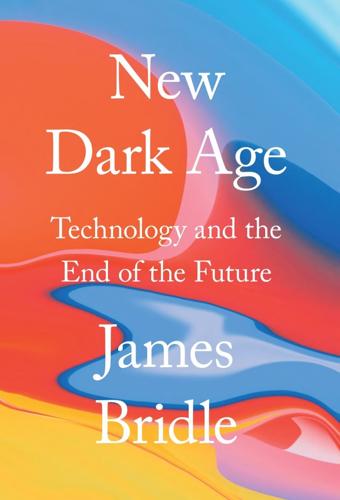
New Dark Age: Technology and the End of the Future
by
James Bridle
Published 18 Jun 2018
The critical event has already occurred, and the underlying causes are always ignored. Considering the efficacy of surveillance in this way forces us to reflect on our own strategies for opposing abuses of power. Does throwing light on the subject really help? Improved lighting has long been one of the axioms of security theatre itself, but the installation of lighting on city streets has as often been followed by a rise in crime as it has preceded a fall.36 Criminals may be as emboldened by the light as any victim: when everything is well lit, the malicious look a lot less suspicious, and they know when the coast is clear.
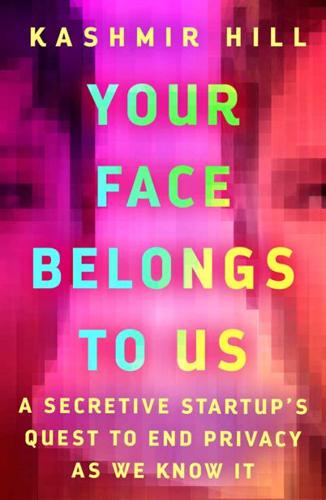
Your Face Belongs to Us: A Secretive Startup's Quest to End Privacy as We Know It
by
Kashmir Hill
Published 19 Sep 2023
All facial recognition companies wanted real-world photos and video of people taken with surveillance cameras, particularly in situations such as at an airport, where people’s identities were being checked, so that they would have a robust database of faces paired with names to improve their software—eventually to the point where it would actually work. Bruce Schneier, the technologist who had criticized the surveillance of Super Bowl fans, later coined a term for countermeasures such as this, which “provide the feeling of security instead of the reality”: security theater. Face scanning would not actually help identify bad guys; its only possible benefit was deception, making travelers feel less anxious and deterring anyone with nefarious intent who believed the facial scanning could be used against them. Representatives from the ACLU continued to rail against the technology in the media and at security conferences.
…
In 1998, Atick’s system had been installed on twelve of the area’s three-hundred-some CCTV cameras, comparing the faces of passersby to a police database of around a hundred convicted street robbers. It had led to a decrease in street crime, leading to favorable public approval ratings, yet it had not led to any arrests. Its presence alone had evidently scared off would-be criminals. The security theater worked. Even Tom Colatosti found use cases like Newham’s off-putting. He thought that Atick was the one overhyping the technology and that facial recognition should be deployed only in places where there was a security threat, not in the middle of cities scanning the faces of anyone who walked by.
…
GO TO NOTE REFERENCE IN TEXT Atick kept a diary: Excerpts from Joseph Atick’s diary shared with the author. GO TO NOTE REFERENCE IN TEXT “Immediately there was”: Author’s interview with Joseph Atick, 2021. GO TO NOTE REFERENCE IN TEXT security theater: Bruce Schneier, Beyond Fear: Thinking Sensibly About Security in an Uncertain World (New York: Copernicus, 2003), 38. GO TO NOTE REFERENCE IN TEXT “We have had zero percent”: Barry Steinhardt, quoted in Lewine, “Face-Scan Systems’ Use Debated.” GO TO NOTE REFERENCE IN TEXT “While company officials”: Leonora LaPeter, “Interest in Facial Scans Surges,” St.
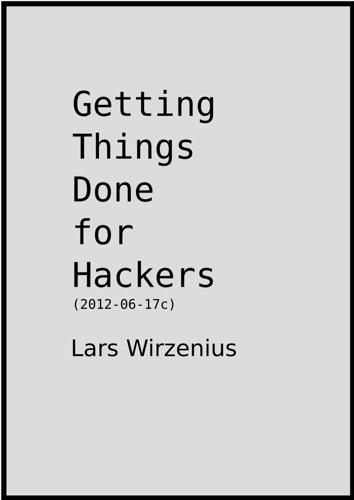
Getting Things Done for Hackers
by
Lars Wirzenius
Published 15 Jun 2012
CALENDARS AND OTHER REMINDER SYSTEMS previous time is a good time to cut your nails. Having your computer remind you about it makes it much more likely that you’ll do it when it’s time. However, having your calendar remind you every twelve days may not work so well, because you might be travelling on that 12th day, and the annoying flight security theater made it impossible to take your nail cutter with you. (This is not a hypothetical example.) A better solution would remind you twelve days after the previous time you actually cut the nails, not after the previous reminder. I have a program called “nagger” which does exactly that, but it is not suitable for others to use (unless you dig editing procmailrc files, and probably not even then).
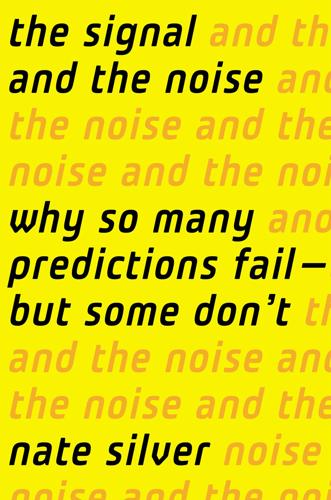
The Signal and the Noise: Why So Many Predictions Fail-But Some Don't
by
Nate Silver
Published 31 Aug 2012
It’s much easier to bust a sixteen-year-old kid for smoking a joint than to solve an auto theft or prevent a murder. Everybody likes to live in a cleaner, safer neighborhood. But it’s unclear whether the broken-windows theory is more than window dressing. Likewise, the ever more cumbersome requirements for commercial flights fall into the category of what the security expert Bruce Schneier calls “security theater”75—they are more for show than to actually deter terrorists. It’s by no means completely irrational to be worried about airport security; airplanes have been the subject of a large number of terror attacks in the past, and terrorism can have a copycat element.76 Yet even accounting for crashes that had nothing to do with terrorism, only about one passenger for every twenty-five million was killed on an American commercial airliner during the decade of the 2000s.77 Even if you fly twenty times per year, you are about twice as likely to be struck by lightning.
…
Harcourt and Jens Ludwig, “Broken Windows: New Evidence from New York City and a Five-City Social Experiment,” University of Chicago Law Review, 73 (2006). http://lawreview.uchicago.edu/sites/lawreview.uchicago.edu/files/uploads/73.1/73_1_Harcourt_Ludwig.pdf. 75. Bruce Schneier, “Beyond Security Theater,” Schneier on Security, November 13, 2009. http://www.schneier.com/blog/archives/2009/11/beyond_security.html. 76. Ibid., Kindle location 1035. 77. Nate Silver, “Crunching the Risk Numbers,” Wall Street Journal, January 8, 2010. http://Online.wsj.com/article/SB10001424052748703481004574646963713065116.html. 78.
…
Senate, 109th Congress, 2nd Session; September 8, 2006. http://intelligence.senate.gov/phaseiiaccuracy.pdf. 85. Martin Chulov and Helen Pidd, “Defector Admits to WMD Lies That Triggered Iraq War,” The Guardian, February 15, 2011. http://www.guardian.co.uk/world/2011/feb/15/defector-admits-wmd-lies-iraq-war. 86. Schneier, “Beyond Security Theater,” Kindle locations 1321–1322. 87. Harvey E. Lapan and Todd Sandler, “Terrorism and Signalling,” European Journal of Political Economy, 9, 3 (August 1993), pp. 383–397; 88. The 9/11 Commission Report, Kindle locations 9286–9287. 89. Michael A. Babyak, “What You See May Not Be What You Get: A Brief, Nontechnical Introduction to Overfitting in Regression-Type Models,” Psychosomatic Medicine, 66 (2004), pp. 411–.421; 2004. http://os1.amc.nl/mediawiki/images/Babyak_-_overfitting.pdf.
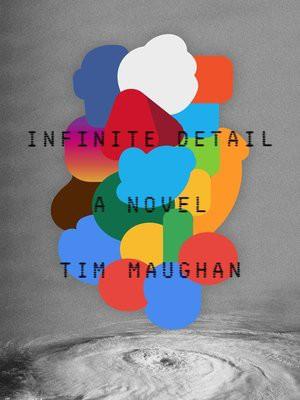
Infinite Detail
by
Tim Maughan
Published 1 Apr 2019
In the bathroom he realizes that the long window is a two-way mirror, which seems pointless as all the cubicles—sorry, stalls—have doors anyway. Whatever. He’d abandoned the idea of there being any logic to security theater years ago. The idea she’d just hand him his spex like that because of his accent was bullshit too; she probably gives them back to anybody who actually asks. Unofficial policy, for practical sanity, to stop everyone kicking off all the time. It’s no big deal being in here, really. Security theater. Bullshit and ritual. Fear and flag-waving. He shakes his head and ducks into the stall. * * * He thumbs the power on the spex, checks the LED is green for charge, and slips them onto his face.
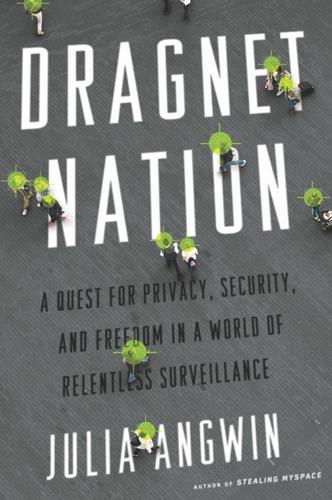
Dragnet Nation: A Quest for Privacy, Security, and Freedom in a World of Relentless Surveillance
by
Julia Angwin
Published 25 Feb 2014
” * * * The surveillance of Yasir Afifi appears to have started with an innocent question about why deodorant could not pass through an airport screening. On June 24, 2010, a user of the social networking website Reddit.com named “JayClay” posted a question: “So if my deodorant could be a bomb, why are you just chucking it in the bin?” His post generated hundreds of comments. Some Reddit users dubbed the deodorant ban “Security Theater.” Others talked about items they had smuggled onto planes—nail clippers, bamboo needles, razors, knives. One user suggested that bombing a mall would be a “softer target.” On June 25, a user named “Khaledthegypsy” weighed in: “bombing a mall seems so easy to do,” he wrote. “i mean all you really need is a bomb, a regular outfit so you arent the crazy guy in a trench coat trying to blow up a mall and a shopping bag. i mean if terrorism were actually a legitimate threat, think about how many fucking malls would have blown up already.”
…
Party”) RSA firm Rutgers University Rwanda Safari salting San Francisco Chronicle Satellite Sentinel Project Scheindlin, Shira Schley, Courtney Schmidt, Eric Schneier, Bruce Schneier on Security (Schneier) Schoenberg, Evan schools Schrems, Max Science Scoble, Robert SearchBug.com search engines. See also specific search engines auditing your data on search warrants Secret New York (Rives) secret police Secrets & Lies (Schneier) Secret Service security, privacy vs. Security Engineering (Anderson) security questions Security Theater September 11, 2001, attacks sexual orientation Shahzad, Faisal Shearson, Julia Shilkin, Rob Shiller, Benjamin Reed Shopping.com Shutova, Ekaterina Shutterfly Signal conference Silent Circle Silent Phone Silent Text Sinclair, Upton Singer-Vine, Jeremy Skyhook Skype Slobogin, Christopher smart card Smith, Stephen Smith, Will Snowden, Edward social networking sites.
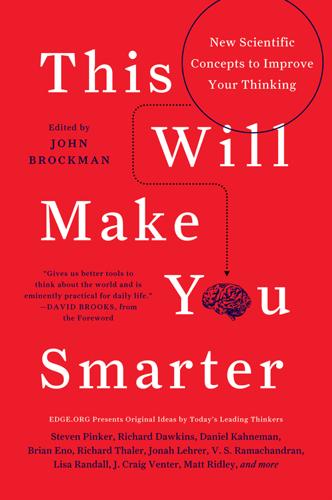
This Will Make You Smarter: 150 New Scientific Concepts to Improve Your Thinking
by
John Brockman
Published 14 Feb 2012
Science Versus Theater Ross Anderson Professor of security engineering, University of Cambridge Computer Laboratory; researcher in the economics and psychology of information security Modern societies waste billions on protective measures whose real aim is to reassure rather than to reduce risk. Those of us who work in security engineering refer to this as “security theater,” and there are examples all around us. We’re searched going into buildings that no terrorist would attack. Social-network operators create the pretense of a small intimate group of “friends,” in order to inveigle users into disclosing personal information that can be sold to advertisers. The users get not privacy but privacy theater.
…
S., 242–45 Randall, Lisa, 192–93 randomness, 105–8 rational unconscious, 146–49 ratios, 186 Read, Leonard, 258 realism, naïve, 214 Reality Club, xxix recursive structure, 246–49 reductionism, 278 Rees, Martin, 1–2 regression, 235 ARISE and, 235–36 relationalism, 223 relativism, 223, 300 relativity, 25, 64, 72, 234, 297 religion, 5, 6, 114 creationism, 268–69 self-transcendence and, 212–13 supernatural beings in, 182–83 and thinking in time vs. outside of time, 222 repetition, in manufacture, 171 replicability, 373–75 Revkin, Andrew, 386–88 Ridley, Matt, 257–58 risk, 56–57, 68–71, 339 security theater and, 262 statistical thinking and, 260 risk aversion, 339 risk literacy, 259–61 Ritchie, Matthew, 237–39 Robertson, Pat, 10 Roman Empire, 128 root-cause analysis, 303–4 Rosen, Jay, 203–5 Rovelli, Carlo, 51–52 Rowan, David, 305–6 Rucker, Rudy, 103–4 Rushkoff, Douglas, 41–42 Russell, Bertrand, 123 Rwanda, 345 Saatchi, Charles, 307–8 safety, proving, 281 Saffo, Paul, 334–35 Sagan, Carl, 273, 282 Sakharov, Andrei, 88 Salcedo-Albarán, Eduardo, 345–48 Sampson, Scott D., 289–91 Sapolsky, Robert, 278–80 Sasselov, Dimitar, 13–14, 292–93 SAT tests, 47, 89 scale analysis, 184–87 scale transitions, 371–72 scaling laws, 162 Schank, Roger, 23–24 Schmidt, Eric, 305 schools, see education Schrödinger’s cat, 28 Schulz, Kathryn, 30–31 science, 192–93 discoveries in, 109–11, 240–41, 257 humanities and, 364–66 method of, 273–74 normal, 242–43, 244 pessimistic meta-induction from history of, 30–31 replicability in, 373–75 statistically significant difference and, 378–80 theater vs., 262–63 scientific concept, 19, 22 scientific lifestyle, 19–22 scientific proof, 51, 52 scuba divers, 40 seconds, 163 security engineering, 262 security in information-sharing, 75–76 Segre, Gino, 28–29 Sehgal, Tino, 119 Seife, Charles, 105–8 Sejnowski, Terrence, 162–64 self, 212 ARISE and, 235–36 consciousness, 217 Other and, 292–93 separateness of, 289–91 subselves and the modular mind, 129–31 transcendence of, 212–13 self-control, 46–48 self-model, 214 self-serving bias, 37–38, 40 Seligman, Martin, 92–93 Semelweiss, Ignaz, 36 senses, 43, 139–42 umwelt and, 143–45 sensory desktop, 135–38 September 11 attacks, 386 serendipity, 101–2 serotonin, 230 sexuality, 78 sexual selection, 228, 353–54 Shamir, Adi, 76 SHAs (shorthand abstractions), xxx, 228, 277, 395–97 graceful, 120–23 Shepherd, Jonathan, 274 Shermer, Michael, 157–59 shifting baseline syndrome, 90–91 Shirky, Clay, xxvii, 198, 338 signal detection theory, 389–93 Signal Detection Theory and Psychophysics (Green and Swets), 391 signals, 228 Simon, Herbert, 48 simplicity, 325–27 skeptical empiricism, 85 skepticism, 242, 243, 336 skydivers, 39 Smallberg, Gerald, 43–45 smell, sense of, 139–42, 143–44 Smith, Adam, 258 Smith, Barry C., 139–42 Smith, Hamilton, 166 Smith, Laurence C., 310–11 Smith, John Maynard, 96 Smolin, Lee, 221–24 social microbialism, 16 social networks, 82, 262, 266 social sciences, 273 Socrates, 340 software, 80, 246 Solomon Islands, 361 something for nothing, 84 specialness, see uniqueness and specialness Sperber, Dan, 180–83 spider bites, 68, 69, 70 spoon bending, 244 stability, 128 Standage, Tom, 281 stars, 7, 128, 301 statistically significant difference, 378–80 statistics, 260, 356 stem-cell research, 56, 69–70 stock market, 59, 60–61, 151, 339 Flash Crash and, 60–61 Pareto distributions and, 199, 200 Stodden, Victoria, 371–72 stomach ulcers, 240 Stone, Linda, 240–41 stress, 68, 70, 71 string theories, 113, 114, 299, 322 subselves and the modular mind, 129–31 success, failure and, 79–80 sun, 1, 7, 11, 164 distance between Earth and, 53–54 sunk-cost trap, 121 sunspots, 110 Superorganism, The (Hölldobler and Wilson), 196–97 superorganisms, 196 contingent, 196–97 supervenience, 276, 363–66 Susskind, Leonard, 297 Swets, John, 391 symbols and images, 152–53 synapses, 164 synesthesia, 136–37 systemic equilibrium, 237–39 Szathmáry, Eörs, 96 Taleb, Nassim, 315 TANSTAAFL (“There ain’t no such thing as a free lunch”), 84 Tapscott, Don, 250–53 taste, 140–42 tautologies, 355–56 Taylor, F.
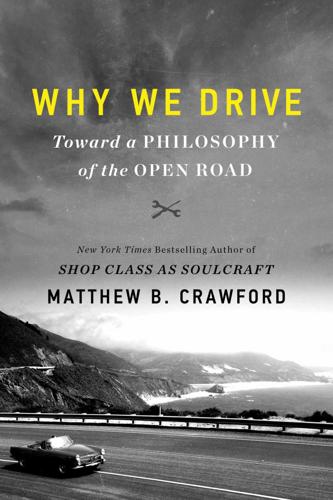
Why We Drive: Toward a Philosophy of the Open Road
by
Matthew B. Crawford
Published 8 Jun 2020
The posted speeds make technical violators out of motorists driving at reasonable and safe speeds.”8 One can find parallels in other policy areas where a proliferation of rules provides a sheen of rationality, but it is in the gap between the rules and reasonableness that officialdom feeds.9 Rigid sentencing laws and the “war on drugs” were indispensable to the rise of a massive prison industry. The TSA comes up with rules for a stage production of “security theater” that each of us must perform, while knowing full well the absurdity of most of it. Those machines you step into and receive a big dose of microwaves from? And the wipe-down with a towelette that is then inserted into a black box to detect explosive residue? Largely useless. The military refuses to use them; instead they use dogs if they are looking for explosives.
…
Just as with mechanized traffic enforcement, this social apparatus has to characterize people as childlike in their vulnerability, and the world as bristling with hazards that need to be regulated. A further parallel is that the system guarantees more collisions, as it were, and hence calls for more intervention. Our social amber time is approaching zero. 10.Jason Chaffetz, former chairman of the House Committee on Oversight and Government Reform, details the absurdities of airport security theater in his book The Deep State. In contemporary America, the role of Congress appears to be mainly that of brokering business deals, using its budgetary oversight of the administrative state (the customer) to take a brokerage fee in the form of campaign contributions from vendors—while distracting voters with culture war.
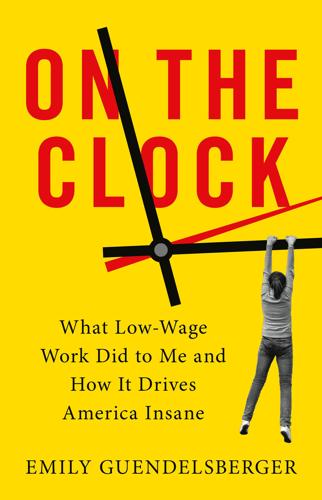
On the Clock: What Low-Wage Work Did to Me and How It Drives America Insane
by
Emily Guendelsberger
Published 15 Jul 2019
I wasn’t pleased with the idea of being searched every single day, which would make it hard to bring in a pencil and paper, much less the voice recorder I’d hoped to smuggle in to take notes while walking. But… Wait—can a security system tell the difference between electronics in a car key fob and electronics in a memory card? I’m pretty sure it can’t. I hope beyond hope that this new “high-tech system” is just security theater. “Now, this is a slide everybody loves the most,” Miguel finally says after nearly two hours. “You know why that is? Because it’s the last one!” It’s identical to the first: WORK HARD. HAVE FUN. MAKE HISTORY. I snap awake when my alarm goes off at 4:00 a.m. the next day. Being up at this hour feels absurd, but I figure it’ll give me enough time to shower, dress, have breakfast, drive the forty-five minutes to SDF8, and still arrive with half an hour of padding.
…
Decrease the number of objectives workers have for each call so they aren’t as mentally and emotionally taxing E. Install a program that badgers workers with corrective pop-ups telling them that they sound tired Seriously—what kind of fucking sociopath goes with E? But it doesn’t actually matter whether Convergys uses this kind of software. As with SDF8’s security theater, what’s important is that a lot of people believe it’s being used and fear it.* I used to live near Philly’s Eastern State Penitentiary, a tourist destination that looks like a few square blocks of medieval castle plunked down into a residential neighborhood. From above, though, it looks a bit like a flower, or a windmill: It’s one of the first physical examples of a panopticon, a concept dreamed up by British philosopher Jeremy Bentham in the late eighteenth century.
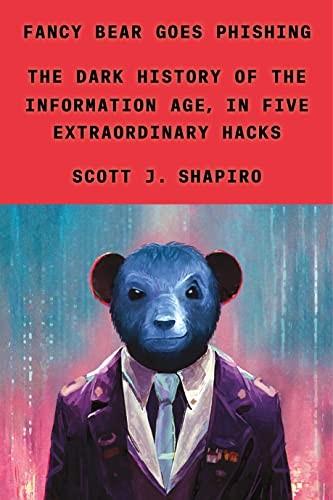
Fancy Bear Goes Phishing: The Dark History of the Information Age, in Five Extraordinary Hacks
by
Scott J. Shapiro
Schneier looks just as our Representativeness Heuristic says he should: trim, medium height, with a full, well-groomed gray beard and perpetually balding hair tied into a long ponytail. Schneier is known for his flowery shirts and flattop taxicab hats. He is outspoken and unapologetic. Schneier invented the term security theater, arguing that the post-9/11 reforms to airline security only make us feel safer. In reality, they’ve made us less safe. According to Schneier, the purpose of x-raying your shoes is to convince you to get on the plane, not to stop terrorists from blowing it up. On September 13, 2016, Schneier posted a disturbing entry titled “Someone Is Learning How to Take Down the Internet” on Lawfare, a blog widely read by the national security community.
…
The Minecraft Wars only make us feel safer: Bruce Schneier, Beyond Fear: Thinking Sensibly About Security in an Uncertain World (New York: Copernicus Books, 2003). from blowing it up: Bruce Schneier, “Is Aviation Security Mostly for Show?,” CNN, December 29, 2009, http://edition.cnn.com/2009/OPINION/12/29/schneier.air.travel.security.theater/. “precisely calibrated attacks”: Bruce Schneier, “Someone Is Learning How to Take Down the Internet,” Lawfare, September 13, 2016, https://www.lawfareblog.com/someone-learning-how-take-down-internet. DDoS: Schneier, “Someone Is Learning.” processing legitimate requests: “What Is a DDoS Attack,” Cloudflare Learning Center, accessed February 24, 2021, www.cloudflare.com/learning/ddos/what-is-a-ddos-attack.

HTML5 Cookbook
by
Christopher Schmitt
and
Kyle Simpson
Published 13 Sep 2011
While many security experts suggest applying autocomplete="off" to form fields that contain sensitive data, you should keep in mind that this is not a particularly effective security measure. Some browsers do not yet support autocomplete, and since so many tools exist to circumvent autocomplete="off"—tools that still auto-inject a user’s stored password—it’s often security theater or simply a false security measure. Those browsers that do not support autocomplete simply ignore the attribute altogether. For a browser support reference on autocomplete, see Table 3-11. Table 3-11. Browser support for the autocomplete attribute IE Firefox Chrome Safari Opera iOS Android Yes* 4+ Yes* Yes* 10.0+ Yes* Yes* Note In Table 3-11, “Yes” indicates that the browser has implemented autocomplete in a pre-HTML5, nonstandard way.
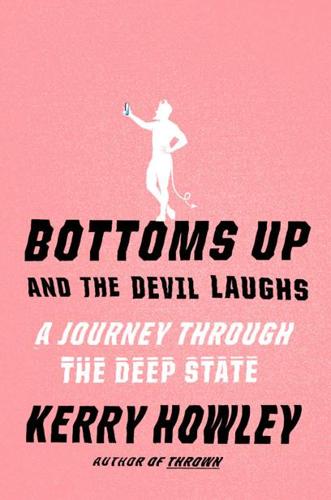
Bottoms Up and the Devil Laughs
by
Kerry Howley
Published 21 Mar 2023
This was something The Intercept had the capacity and expertise to do: report on documents a savvy leaker had handed them in a responsible way. It was, frankly, a pain in the ass, so much so that some of the staff felt the documents were underused; there was interesting stuff that was just too annoying to report on. Others thought it was security theater, a kind of self-important, self-imposed performance. The world of the small locked room is the world we can imagine Reality envisioned when she posted the document, but the journey her document took bore no relation to this at all. It would involve different players, and different protocols, if you could call them that.
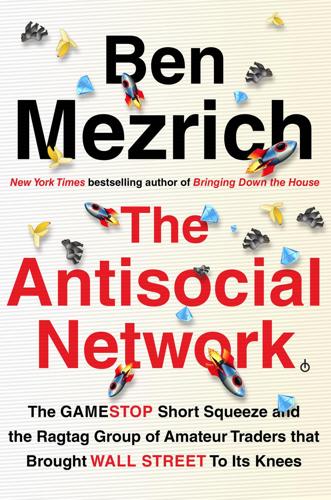
The Antisocial Network: The GameStop Short Squeeze and the Ragtag Group of Amateur Traders That Brought Wall Street to Its Knees
by
Ben Mezrich
Published 6 Sep 2021
By the end of the week, even Angie, her biggest supporter, who had been so proud that Kim was part of what was going on with GameStop, had been telling her she needed to take what profits she’d made and get out. And yet somehow, Kim just couldn’t sell. Even as the stock continued to fall, that very morning—she still couldn’t force herself to dump her GME. After Angie had dropped her off at the airport and she’d worked her way through the security theater—and the additional Covid double encore—she’d paused at the gate to call Chinwe, her work husband, because like a real husband and wife, they always liked to call each other before and after flights. To her surprise, he hadn’t immediately jumped on her with comments about Goliath or David; but the quiet on the other end of the line made her feel even more foolish somehow.
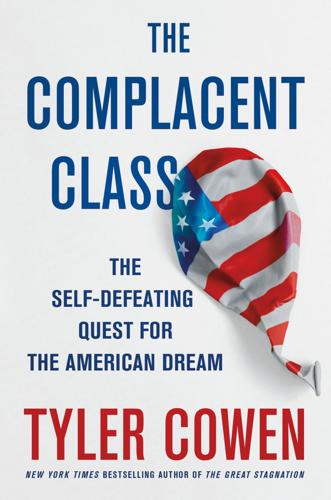
The Complacent Class: The Self-Defeating Quest for the American Dream
by
Tyler Cowen
Published 27 Feb 2017
The most famous source of these bombings was the radical group the Weather Underground, but other bombers included anti–Vietnam War groups, student radicals, fighters for racial justice, and Puerto Rican independence groups, with plenty of amateur, homemade bombs circulating at the time. Yet it’s today, and not back then, when the “security theater” to protect against bombs is so intense.1 And don’t forget the riots. Starting with the 1965 Watts clashes in Los Angeles, the country faced a wave of intensely violent and often out-of-control social unrest. A police chief from the time remarked: “This situation is very much like fighting the Viet Cong … We haven’t the slightest idea when this can be brought under control.”
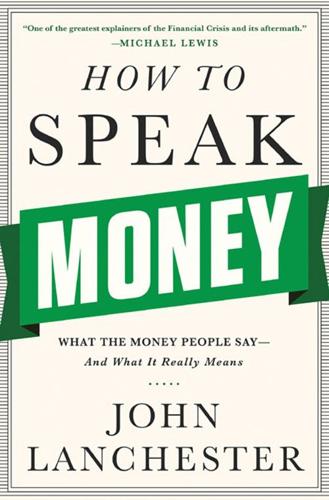
How to Speak Money: What the Money People Say--And What It Really Means
by
John Lanchester
Published 5 Oct 2014
I’m completely terrified of flying—when I say “terrified,” I mean I can’t get on a plane unless I’m zonked on prescription tranquilizers. But even I can see that that’s an irrational fear, because contemporary commercial aviation is extraordinarily, uncannily safe. The experience of flying is so ghastly—the nasty airports, the multiple queueing, the intelligence-insulting security theater, the cattle-car in-flight conditions—that we tend to forget what an astonishing success the air industry has made of its safety record. Do we even notice? No, not really—what we notice are the crashes. Maybe the story of aid is a bit like that. If 16,438 children died today in a single disaster, it would dominate every news media outlet in the world for weeks.
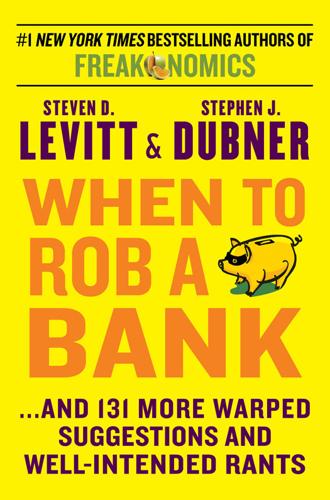
When to Rob a Bank: ...And 131 More Warped Suggestions and Well-Intended Rants
by
Steven D. Levitt
and
Stephen J. Dubner
Published 4 May 2015
And if Secretary LaHood has any interest in pursuing any of these avenues, I stand at the ready to offer whatever help that I can. Update: Secretary LaHood never did take me up on my offer to help. Security Overkill, Diaper-Changing Edition (SJD) I’ve been thinking a bit lately about security overkill. This includes not just the notion of “security theater,” but the many instances in which someone places a layer of security between me and my everyday activities with no apparent benefit. My bank, for instance, would surely argue that its many and various anti-fraud measures are valuable. But in truth, they are a) meant to protect the bank, not me; and b) cumbersome to the point of ridiculous.
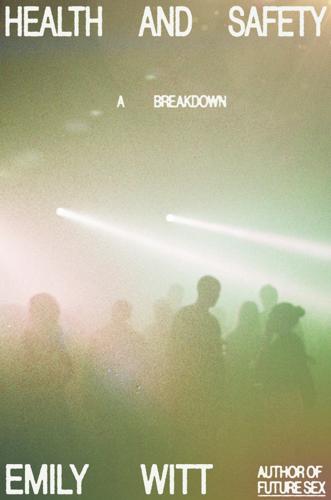
Health and Safety: A Breakdown
by
Emily Witt
Published 16 Sep 2024
On that afternoon I started to laugh, the performance was so chaotic and absurd, but Omar, who was standing next to me, gave me a severe look. “You can laugh at this?” she asked, as her interns started to cry. When I flew back to New York the next day, Loomer was just a few people ahead of me in the security line at the Minneapolis–Saint Paul Airport. She wore a hooded sweatshirt, a nondescript participant in security theater. I could have approached her, but I didn’t. I left the scene of her at the deli out of my article, telling myself something about “not giving her a platform,” and only later seeing that this interruption was likely the reality that mattered more than the one I had described. These provocations seemed to be more about the performance and the confrontation than the convictions they claimed to support.
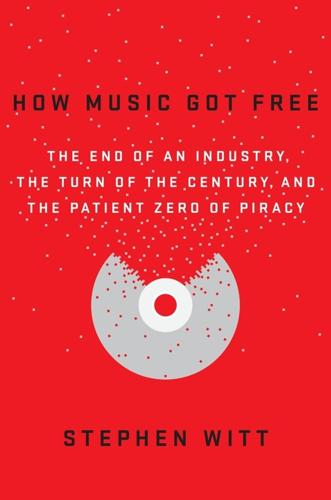
How Music Got Free: The End of an Industry, the Turn of the Century, and the Patient Zero of Piracy
by
Stephen Witt
Published 15 Jun 2015
And then, without further inspection, the guard just waved him through. They hadn’t made him take off his boots. They hadn’t patted him down or asked him any difficult questions. He had set off the wand, and there were no consequences. At that moment, Glover realized that the wandings were performatory. This wasn’t security, but security theater, a pantomime intended to intimidate would-be thieves rather than catch actual smugglers. And the low-wage security guards who ran the daily showings were just as bored of them as everybody else. If Glover could somehow fit the compact discs inside of his boots, he could finally get them out on his own.
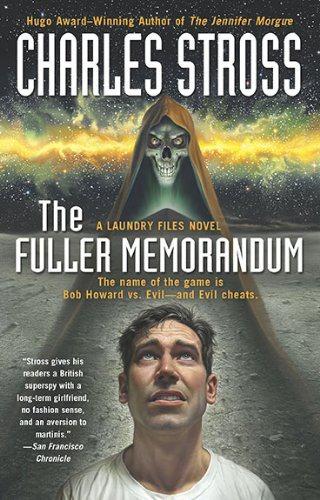
Fuller Memorandum
by
Stross, Charles
Published 14 Jan 2010
The feeders raised just about everything that wasn't totally dismembered and disarticulated. In the end, they had to bring in bulldozers and dig trenches. They identified some of the cultists--but not Jonquil the Sloane Ranger, or her boyfriend Julian. I don't think Brookwood will reopen for a long time. Brains has been given a good talking-to, and is being subjected to the Security Theater Special Variety Show for breaching about sixteen different regulations by installing beta software on an employee's personal phone. Reminding Oscar-Oscar that if he hadn't done so they'd have lost the Eater of Souls to a cultist infiltrator appears to be futile. Right now, everyone in Admin has joined in the world's biggest arse-kicking circle dance, except possibly for Angleton, who is shielding me from the worst of it.
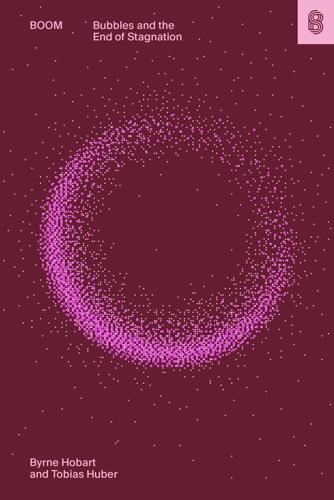
Boom: Bubbles and the End of Stagnation
by
Byrne Hobart
and
Tobias Huber
Published 29 Oct 2024
At the opposite end of the spectrum was Richard Feynman, born 25 miles and a world away in blue-collar Far Rockaway. If Oppenheimer was a force for calm and cooperation, Feynman was an endless source of novel ideas, brilliant contraptions, and practical jokes. Feynman contributed to both the rebellious spirit of the program (learning safecracking to demonstrate his attitude toward the military’s security theater) and its outcome (modeling the payloads of different bomb configurations). Feynman was not the only risk-taker at Los Alamos. A notable factor on this score is the youth of the project participants—the average age of experimenters and engineers at Los Alamos was just 25. 164 Youth, as most of us recall from our teenage years, breeds a risk-taking mentality.
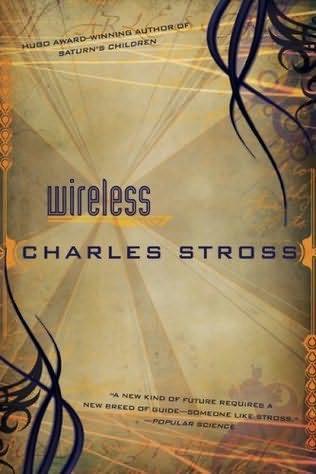
Wireless
by
Charles Stross
Published 7 Jul 2009
Or worse, when the Opposition raise their snouts.” “But I—” Pierce stopped, collected his thoughts, and continued. “I thought that never happened? That the self-policing thing was a, an adequate safeguard?” “Lad.” Kafka shook his head. “You clearly mean well. And self-policing does indeed work adequately most of the time. But don’t let the security theater at your graduation deceive you: there are failure modes. We set you a large number of surveillance assignments to muddy the water—palimpsests all, of course, we overwrite them once they deliver their reports so that future-you retains no memory of them—but you can’t watch yourself all the time.
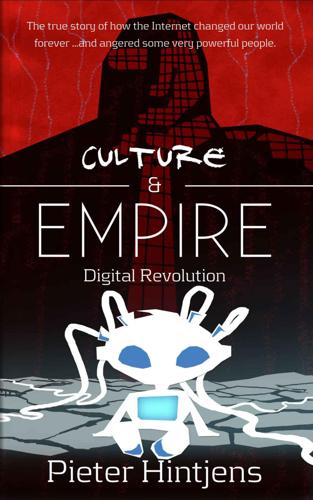
Culture & Empire: Digital Revolution
by
Pieter Hintjens
Published 11 Mar 2013
Most people are pretty lonely, and the idea that someone is watching isn't half as scary as the alternative -- that no one cares. This is why many people enjoy getting some spam. It may be junk, yet at least it's coming to us, personally. We calculate that it doesn't really matter. We tolerate the cameras and spying because we know it's security theater, and we're not really that dumb to take it seriously, even if we like to pretend we are. TV taught us that privacy is a bauble to be traded for a few drops of fame. Tell the world your most intimate details, and become a star for 15 seconds. Famous people don't have privacy. Why should the rest of us need it?
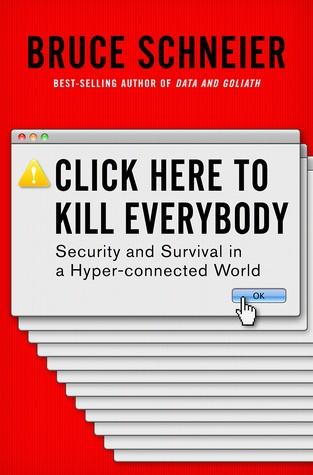
Click Here to Kill Everybody: Security and Survival in a Hyper-Connected World
by
Bruce Schneier
Published 3 Sep 2018
Bruce Schneier (13 Jun 2008), “The psychology of security,” AfricaCrypt 2008, https://www.schneier.com/academic/archives/2008/01/the_psychology_of_se.html. 96I coined the term in 2005: Bruce Schneier (8 Sep 2005), “Terrorists don’t do movie plots,” Wired, http://www.wired.com/2005/09/terrorists-dont-do-movie-plots. 96One: we are a species of storytellers: Bruce Schneier (31 Jul 2012), “Drawing the wrong lessons from horrific events,” CNN, http://www.cnn.com/2012/07/31/opinion/schneier-aurora-aftermath/index.html. 96And two: it makes no sense: Bruce Schneier (Nov 2009), “Beyond security theater,” New Internationalist, https://www.schneier.com/essays/archives/2009/11/beyond_security_thea.html. PART II: THE SOLUTIONS 100Today, spam still constitutes: Statista (Oct 2017), “Global spam volume as percentage of total e-mail traffic from January 2014 to September 2017, by month,” https://www.statista.com/statistics/420391/spam-email-traffic-share. 100but 99.99% of it is blocked: Jordan Robertson (19 Jan 2016), “E-mail spam goes artisanal,” Bloomberg, https://www.bloomberg.com/news/articles/2016-01-19/e-mail-spam-goes-artisanal. 100The EU’s Payment Services Directives: Steven J.

Apollo's Arrow: The Profound and Enduring Impact of Coronavirus on the Way We Live
by
Nicholas A. Christakis
Published 27 Oct 2020
One formal model that evaluated what would happen if all airplane flights were canceled on the thirtieth day after the onset of a pandemic (which would actually be incredibly speedy) concluded that, even if 99.9 percent of all flights were canceled, it would postpone the peak attack of a moderately transmissible disease (with an R0 of 1.7) by just forty-two days.47 Restrictions on internal air travel in a country like the United States are relatively ineffective given how much road travel there is. Attempts by state governors in late March 2020 to close their borders to other states, in addition to being constitutionally suspect, seemed mainly a kind of security theater. When the governor of Florida, Ron DeSantis, suggested that individuals with New York State plates be stopped at the border, it was viewed by many as simply an effort to shift responsibility for the pathogen onto outsiders. This may be a common political way of coping with pandemic disease, but it makes no public health sense.
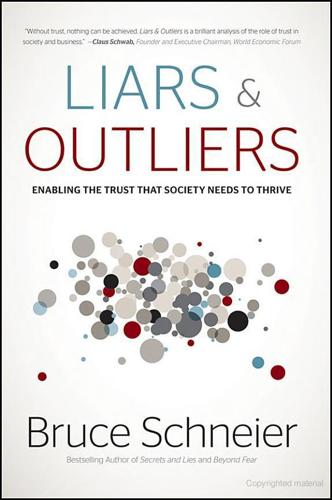
Liars and Outliers: How Security Holds Society Together
by
Bruce Schneier
Published 14 Feb 2012
Jeffrey Conklin (2006), Dialog Mapping: Building a Shared Understanding of Wicked Problems, John Wiley & Sons. ubiquity of data Charles Stross (2011), “Network Security in the Medium Term, 2061–2561 AD,” paper presented at USENIX Security. better off spending Bruce Schneier (2009), “Beyond Security Theater,” New Internationalist, 427:10–13. Yochai Benkler Yochai Benkler (2011), The Penguin and the Leviathan: How Cooperation Trumphs Over Self-Interest, Crown Business, 25–6. security is a process Bruce Schneier (2000), Secrets and Lies: Digital Security in a Networked World, John Wiley & Sons, 273, 395.
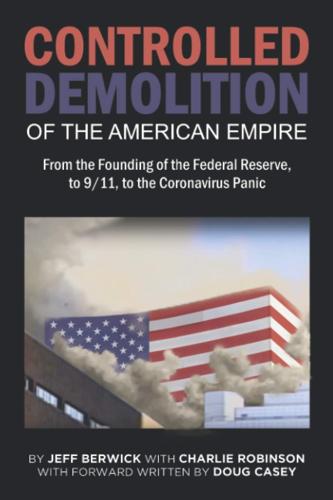
The Controlled Demolition of the American Empire
by
Jeff Berwick
and
Charlie Robinson
Published 14 Apr 2020
Kiriakou did time in a federal prison where he had to sit at the Aryan Brotherhood’s table during meals so that he would not get shanked or worse. This is serious business. Manning, Snowden, McGovern, Drake, and Binney were not protected by the Whistleblower Protection Enhancement Act, so it is not really “protection”, it is all just an “act” This is what is called “security theater”, or the perception that there are protections in place. The name says “Whistleblower Protection Act” so it must protect whistleblowers, right? Does the “Patriot Act” protect patriots? Does the National Defense Authorization Act actually defend the nation? Is the Federal Reserve Bank federal, or does it have any reserves?
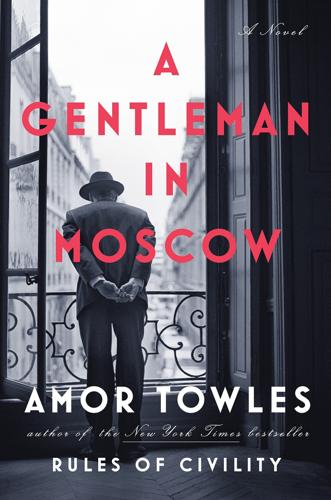
A Gentleman in Moscow
by
Amor Towles
Published 5 Sep 2016
(The officers also endeavored to speak with the hotel’s manager, only to find that he had not yet reported to work—a fact that was duly noted in his file!) At one o’clock, two additional KGB men were summoned so that a more thorough search could be made of the hotel. At two, the senior officer conducting the investigation was encouraged to speak with Vasily, the concierge. Finding him at his desk in the lobby (where he was in the midst of securing theater tickets for a guest), the officer did not beat about the bush. He put his question to the concierge unambiguously: “Do you know the whereabouts of Alexander Rostov?” To which the concierge replied: “I haven’t the slightest idea.” Having learned that both Manager Leplevsky and Headwaiter Rostov had gone missing, Chef Zhukovsky and Maître d’ Duras convened at 2:15 for their daily meeting in the chef’s office, where they immediately engaged in close conversation.
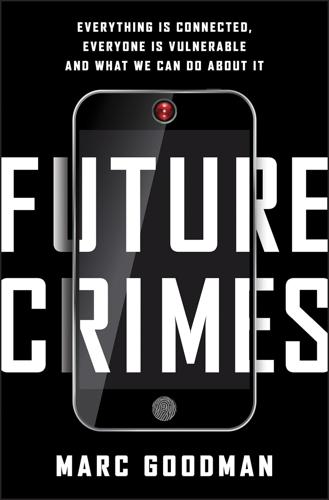
Future Crimes: Everything Is Connected, Everyone Is Vulnerable and What We Can Do About It
by
Marc Goodman
Published 24 Feb 2015
In response to the creativity (albeit diabolical) demonstrated by the terrorists who carried out the 9/11 plot, the government spent billions of dollars and came up with such “innovations” as the Transportation Security Administration. Though frisking four-year-olds and little old ladies in wheelchairs makes for fine “security theater,” we’re going to have to significantly up our game if we hope to prevent future terrorist attacks. Given the pace of technological change, tomorrow’s security threats will not look like those of today—one of the reasons government is struggling mightily in the face of our common cyber insecurity.

An Empire of Their Own: How the Jews Invented Hollywood
by
Neal Gabler
Published 17 Nov 2010
With Waddill Catchings’s encouragement, Harry Warner now acted boldly. By 1930 he had increased the company’s assets to $230 million, bankrolling part of the new investment with a $5 million personal loan. Some of this went toward converting the Warners studios into a complete sound facility. More went toward securing theaters to show the movies and compete with the industry’s giants. First, Harry bought the Stanley Company, which not only had 250 theaters but also held a one-third interest in First National, one of Hollywood’s so-called Big Five. With this share he went after First National itself, buying another third outright and getting the final third from William Fox, who was conducting his own fire sale to cover his debts in the ill-fated takeover of MGM.
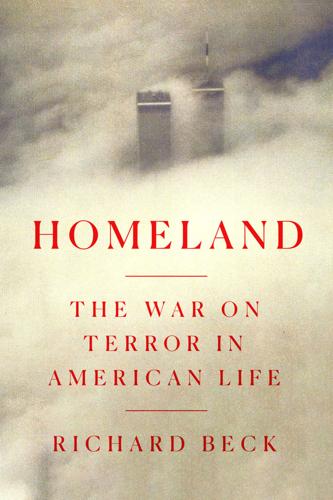
Homeland: The War on Terror in American Life
by
Richard Beck
Published 2 Sep 2024
Checkpoints were now the most crowded parts of the airport, and such an attack would cause almost as much terror as another midair hijacking. Yet nothing like that had happened, which made one begin to suspect that the terrorist threat as a whole had been overhyped. People started to use the phrase “security theater” to describe the situation, the idea being that successfully staging the appearance of safety was a higher priority than actually making the airports secure. But this rationale doesn’t hold up under scrutiny, either. While public opinion polling is an inexact science at best, the evidence suggests that the post-9/11 security program did not make a meaningful difference in how people perceive the safety of air travel, a fact that might be explained by noting that security and safety are not the same thing.[50] Safety is the feeling that you are not threatened.
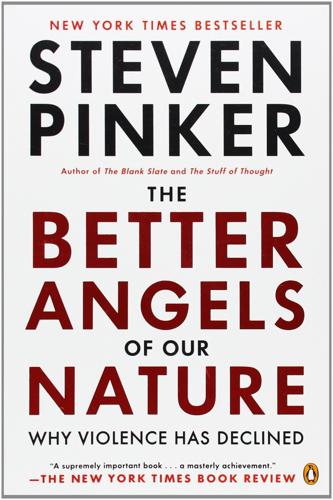
The Better Angels of Our Nature: Why Violence Has Declined
by
Steven Pinker
Published 24 Sep 2012
Experts proclaimed that terrorism made the United States “vulnerable” and “fragile,” and that it threatened to do away with the “ascendancy of the modern state,” “our way of life,” or “civilization itself.”179 In a 2005 essay in The Atlantic, for example, a former White House counterterrorism official confidently prophesied that by the tenth anniversary of the 9/11 attacks the American economy would be shut down by chronic bombings of casinos, subways, and shopping malls, the regular downing of commercial airliners by shoulder-launched missiles, and acts of cataclysmic sabotage at chemical plants.180 The massive bureaucracy of the Department of Homeland Security was created overnight to reassure the nation with such security theater as color-coded terrorist alerts, advisories to stock up on plastic sheeting and duct tape, obsessive checking of identification cards (despite fakes being so plentiful that George W. Bush’s own daughter was arrested for using one to order a margarita), the confiscation of nail clippers at airports, the girding of rural post offices with concrete barriers, and the designation of eighty thousand locations as “potential terrorist targets,” including Weeki Wachee Springs, a Florida tourist trap in which comely women dressed as mermaids swim around in large glass tanks.